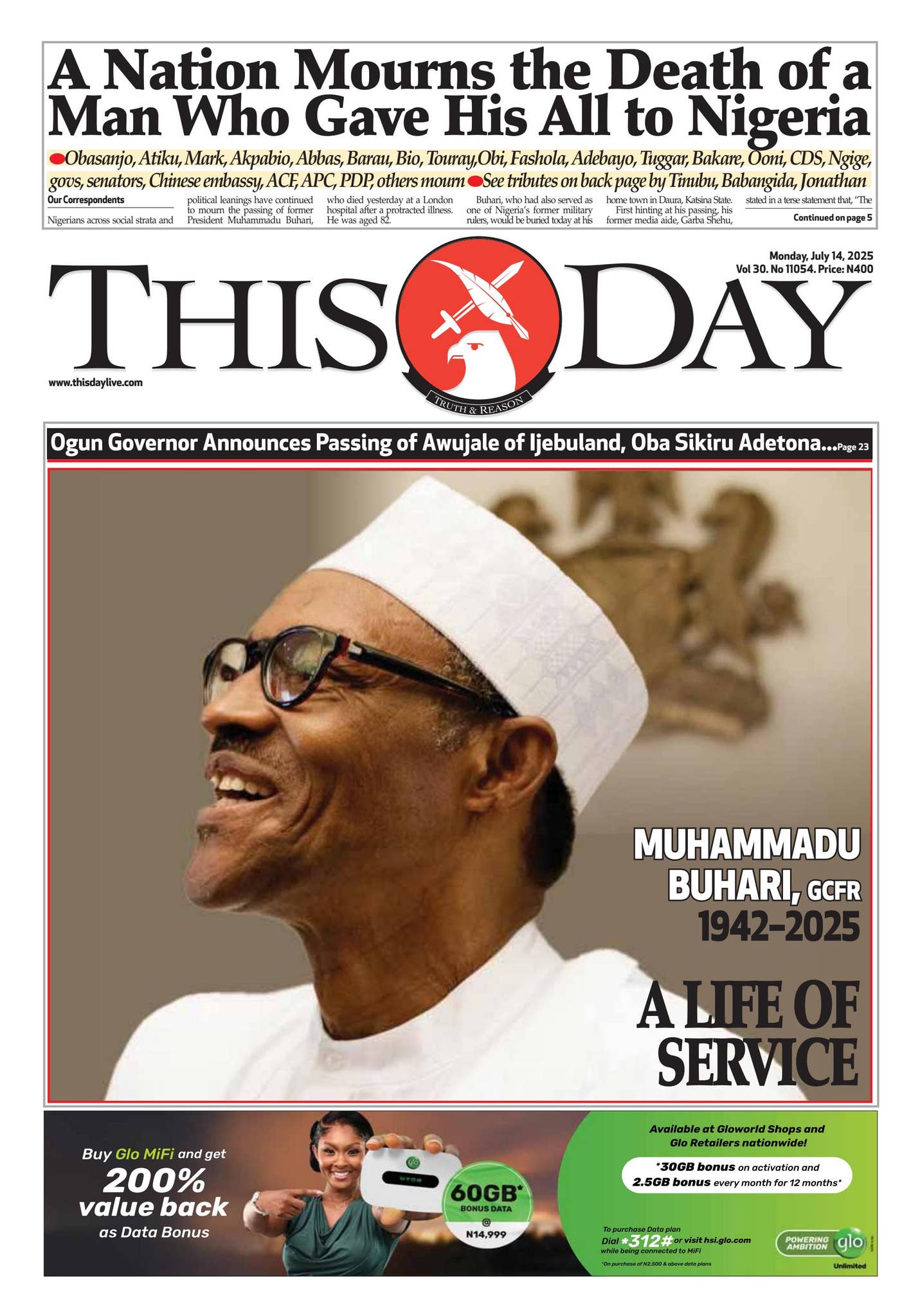The leadership of Muhammadu Buhari is one marked by contrasts. Serving Nigeria first as a military ruler from 1983 to 1985, and later as an elected president from 2015 to 2023, Buhari’s tenure shaped the country’s trajectory with notable achievements alongside significant controversies. His death on July 13 in a London clinic at age 82 closes a chapter filled with both praise for his fight against corruption and pain from political and social challenges.
Muhammadu Buhari’s Early Military Rule and Its Impact
As a military strongman, Muhammadu Buhari came to power amid political instability. His regime was known for its strict discipline and anti-corruption stance but was also criticized for human rights violations and political repression. These formative years left a lasting imprint on Nigeria’s governance structures and public perception of military rule.
Muhammadu Buhari’s Return to Democracy
After decades in the political wilderness, Muhammadu Buhari returned to lead Nigeria as a democratically elected president in 2015. His campaign focused on combating corruption and reviving the economy, resonating with many Nigerians eager for change. However, his administration faced complex challenges including insurgency in the northeast and economic downturns.
Image: Muhammadu Buhari during his tenure as Nigeria’s president.
Challenges Faced During Buhari’s Presidency
Despite efforts to stabilize the nation, Muhammadu Buhari grappled with persistent Boko Haram insurgency, economic recession, and criticism over governance transparency. The balancing act between security and civil liberties defined much of his presidency, leaving a complex legacy in Nigeria’s modern political history.
Muhammadu Buhari’s Anti-Corruption Drive
One of the defining features of Buhari’s leadership was his relentless campaign against corruption. His administration established various anti-corruption bodies and pursued high-profile cases. While this bolstered his image among supporters, critics argued that political motives sometimes overshadowed judicial fairness.
The Socio-Economic Impact of Buhari’s Policies
The economic policies under Muhammadu Buhari aimed to diversify Nigeria’s oil-dependent economy through agriculture and industrialization. Initiatives like the Anchor Borrowers Programme sought to empower farmers, yet economic challenges including inflation and unemployment persisted, affecting public opinion on his governance.
Legacy in Nigeria’s International Relations
During Muhammadu Buhari’s presidency, Nigeria sought to strengthen its diplomatic ties within Africa and globally. His administration played a key role in regional peacekeeping efforts and economic partnerships, though some critics felt more could have been done to elevate Nigeria’s international standing.
Public Perception and Media Coverage
Buhari’s time in office was heavily scrutinized by local and international media. Supporters praised his firm stance on corruption and security, while opponents criticized perceived authoritarian tendencies and lack of social reforms. This polarized media environment reflected the divided public opinion on his legacy.
The Transition and Succession
The end of Muhammadu Buhari’s presidency in 2023 marked a significant political transition in Nigeria. His departure opened the door for new leadership to address unresolved issues and build upon both the successes and failures of his tenure.
Economic Reforms and Their Long-Term Effects
Throughout his presidency, Muhammadu Buhari initiated a series of economic reforms aimed at stabilizing and diversifying Nigeria’s economy. His administration emphasized reducing dependence on oil revenues by promoting agriculture, manufacturing, and technology sectors. Programs such as the Anchor Borrowers Programme empowered local farmers with subsidized loans and inputs, intended to boost food production and rural development.
Despite these efforts, the Nigerian economy faced multiple headwinds, including inflation spikes, currency volatility, and unemployment, particularly among the youth. Critics argue that the reforms were insufficient to tackle systemic issues such as corruption and inadequate infrastructure, which hampered growth. However, supporters contend that Buhari laid important groundwork for future administrations to build upon, fostering a more resilient economic framework. The mixed outcomes of these reforms reflect the complexity of governing Africa’s largest economy amid fluctuating global markets and domestic challenges.
Security Challenges and Counterterrorism Efforts
Security was a defining concern of Muhammadu Buhari’s terms in office. The persistent threat posed by Boko Haram and other insurgent groups required concerted counterterrorism strategies. Buhari, having military experience himself, prioritized strengthening the armed forces and increasing cooperation with neighboring countries to combat cross-border terrorism.
The government launched multiple military offensives and implemented policies aimed at stabilizing the northeast region, where violence had displaced millions. However, despite some territorial gains against insurgents, security remained fragile, and civilian casualties and human rights abuses were reported, drawing criticism from international observers. Additionally, rising banditry, kidnappings, and communal conflicts in other parts of Nigeria complicated the security landscape. These challenges exposed the difficulties of balancing robust security measures with protecting civil liberties and fostering reconciliation in affected communities.
Political Landscape and Governance Style
Muhammadu Buhari’s political career was marked by a distinctive leadership style that combined military discipline with democratic governance. His approach to ruling was often described as firm and uncompromising, especially in tackling corruption, but also perceived by some as authoritarian. Buhari’s government faced accusations of suppressing dissent and limiting press freedom, although his supporters argued these measures were necessary to maintain order and national unity.
His tenure saw efforts to reform public institutions and enhance transparency, with mixed success. Political opposition was active but often met with resistance, and electoral processes under his watch were closely contested. Buhari’s legacy in governance raises important questions about the balance between security, governance efficiency, and democratic freedoms in Nigeria’s evolving political system.
Social Programs and Public Welfare Initiatives
Alongside economic and security policies, Muhammadu Buhari introduced various social welfare programs intended to improve living conditions for Nigeria’s diverse population. Initiatives such as the National Social Investment Program aimed to provide support for vulnerable groups, including conditional cash transfers for low-income families, youth empowerment schemes, and school feeding programs. These efforts targeted poverty reduction and aimed to enhance human capital development across the country. However, implementation faced challenges due to bureaucratic inefficiencies, funding constraints, and occasional allegations of mismanagement.
Public opinion on these programs was divided; while many beneficiaries expressed appreciation, critics questioned their scale and impact given Nigeria’s large population and socio-economic disparities. Despite these challenges, these social initiatives reflect Buhari’s acknowledgment of the importance of addressing human development as part of national progress.
Economic Reforms and Their Long-Term Effects
Throughout his presidency, Muhammadu Buhari initiated a series of economic reforms aimed at stabilizing and diversifying Nigeria’s economy. His administration emphasized reducing dependence on oil revenues by promoting agriculture, manufacturing, and technology sectors. Programs such as the Anchor Borrowers Programme empowered local farmers with subsidized loans and inputs, intended to boost food production and rural development.
Despite these efforts, the Nigerian economy faced multiple headwinds, including inflation spikes, currency volatility, and unemployment, particularly among the youth. Critics argue that the reforms were insufficient to tackle systemic issues such as corruption and inadequate infrastructure, which hampered growth. However, supporters contend that Buhari laid important groundwork for future administrations to build upon, fostering a more resilient economic framework. The mixed outcomes of these reforms reflect the complexity of governing Africa’s largest economy amid fluctuating global markets and domestic challenges.
For more detailed analysis on Nigeria’s political and economic landscape, visit our Nigeria Politics section to explore related articles and expert insights.
Security Challenges and Counterterrorism Efforts
Security was a defining concern of Muhammadu Buhari’s terms in office. The persistent threat posed by Boko Haram and other insurgent groups required concerted counterterrorism strategies. Buhari, having military experience himself, prioritized strengthening the armed forces and increasing cooperation with neighboring countries to combat cross-border terrorism. The government launched multiple military offensives and implemented policies aimed at stabilizing the northeast region, where violence had displaced millions.
However, despite some territorial gains against insurgents, security remained fragile, and civilian casualties and human rights abuses were reported, drawing criticism from international observers. Additionally, rising banditry, kidnappings, and communal conflicts in other parts of Nigeria complicated the security landscape. These challenges exposed the difficulties of balancing robust security measures with protecting civil liberties and fostering reconciliation in affected communities.
Remembering Muhammadu Buhari
The passing of Muhammadu Buhari invites reflection on a complex chapter in Nigerian history. His leadership, marked by both accomplishments and controversies, continues to evoke mixed feelings among Nigerians as the nation looks toward its future.
For more insights on Nigerian politics, visit our Nigeria Politics section.
Learn more about Buhari’s legacy on BBC News – Muhammadu Buhari.
source: allAfrica




